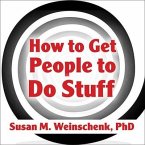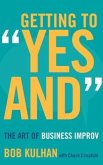We all want people to do stuff. Whether you want your customers to buy from you, vendors to give you a good deal, your employees to take more initiative, or your spouse to make dinner--a large amount of every day is about getting the people around you to do stuff. Instead of using your usual tactics that sometimes work and sometimes don't, what if you could harness the power of psychology and brain science to motivate people to do the stuff you want them to do--even getting people to want to do the stuff you want them to do? In this book you'll learn the seven drives that motivate people: The Desire for Mastery, The Need to Belong, The Power of Stories, Carrots and Sticks, Instincts, Habits, and Tricks of the Mind. For each of the seven drives behavioral psychologist Dr. Susan Weinschenk describes the research behind each drive, and then offers specific strategies to use. Here's just a few things you will learn: The more choices people have the more regret they feel about the choice they pick. If you want people to feel less regret then offer them fewer choices. If you are going to use a reward, give the reward continuously at first, and then switch to giving a reward only sometimes. If you want people to act independently, then make a reference to money, BUT if you want people to work with others or help others, then make sure you DON'T refer to money. If you want people to remember something, make sure it is at the beginning or end of your book, presentation, or meeting. Things in the middle are more easily forgotten. If you are using feedback to increase the desire for mastery, keep the feedback objective, and don't include praise.



